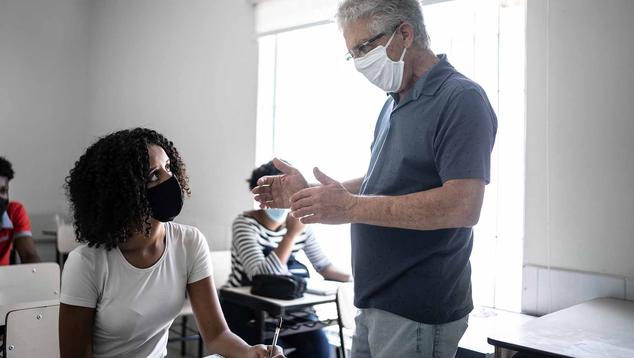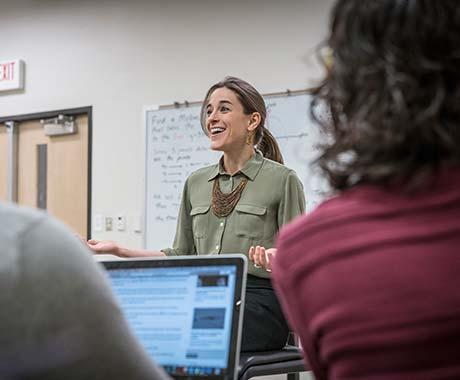Faculty expertise and pedagogical approach are important factors in determining the quality of the student experience, but faculty employee engagement is also critical for ensuring a high-quality student experience.
Engaged faculty are emotionally and psychologically committed to their work and their workplace. Gallup finds that engaged employees are less likely to leave their institution, represent lower healthcare costs for their employer, have fewer absences and are more likely to recommend their institution as a place to work. And while these are important outcomes for institutions, so too is the student experience -- and faculty engagement is highly predictive of a high-quality student experience.
Gallup maintains interviews with more than 100,000 faculty and staff in its engagement database and has found a significant relationship between faculty engagement and each of those institutional outcomes.
Gallup recently partnered with a private not-for-profit institution and conducted engagement surveys among faculty and staff while also interviewing currently enrolled graduate students across a series of disciplines. Gallup used administrative information to match faculty members' engagement results to the students they taught. This information allowed Gallup to evaluate the relationship between faculty engagement and the quality of the student experience as measured by students' likelihood to recommend their program to others. Gallup averaged the engagement GrandMean for all faculty members connected to each student.
Next, Gallup categorized students as program promoters, passives or detractors based on their response to a simple question used to calculate their net promoter score (NPS) -- whether they would recommend their program to others using a zero-to-10 scale, where zero meant "not at all likely" and 10 meant "extremely likely." Students who rated their likelihood to recommend their program as a zero to 6 were categorized as program detractors. Those who answered with a 7 or 8 were categorized as passives, and those who answered with a 9 or 10 were categorized as promoters.
Program promoters had faculty with significantly higher engagement levels compared with those who were categorized as passives or detractors. The average engagement score for faculty who taught program promoters was 3.58, compared with 3.46 among those who taught program passives and 3.30 among those who taught program detractors.

Custom graphic. Program promoters had faculty with an engagement score of 3.58, while program passives had faculty with an engagement score of 3.46. Those who are program detractors had faculty with an engagement score of 3.30.
This analysis confirms what so many education leaders already know -- that when faculty have the materials and equipment they need, feel cared for at work, and feel connected to their leaders and colleagues, they are able to invest discretionary effort that improves the student experience.
Engagement is an important outcome unto itself -- every faculty and staff member deserves a workplace that invests in them as much as it invests in their output. However, engagement is also critical for ensuring schools remain financially stable and even grow amid declining student enrollment nationally. As schools face financial challenges due to COVID-19 and enduring realities, it's critical that leaders do not lose sight of their most important asset -- their employees.
Gallup can help you create an engaging and inclusive workplace for faculty and staff:
- Learn more about our approach to improve student outcomes by focusing on what educators need to succeed at work.
- Explore the connection between wellbeing and engagement.
- See why a strengths-based workplace is just as important as a strengths-based approach to education.





